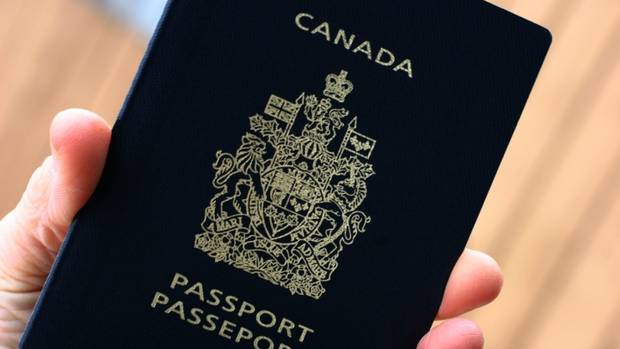project introduction:
Reuniting immigrants are divided into domestic application and overseas application. If you are already in Canada and have a student visa or are entering Canada on a tourist visa, you are advised to submit an in-country application. In the case of domestic application, the applicant can apply for a work permit for the spouse at the same time as the immigration application, and then can work legally in Canada. If the applicant is unable to obtain a tourist visa to enter Canada or already holds a work visa, it is recommended to submit an overseas application. The advantage of overseas application is that the processing time is shorter than that of domestic application.
application requirement:
The sponsor must be a Canadian citizen or permanent resident
Desire to live in Canada
Legal age to marry or common-law spouse
Emotional truth
Application process and time frame:
1. It will be submitted to the immigration bureau by mail
2.1-3 months to obtain the work visa (apply for the spouse work visa at the same time as the domestic reunion, and obtain the open work visa in about 1-3 months)
3. Review the qualifications of the guarantor
4. Review the applicant's situation and the authenticity of the relationship with the guarantor
5. After passing the examination, you will get the immigration paper and land in Canada with the immigration paper to become a permanent resident
The government's current trial time for the whole process, whether inside or outside China, is one year.

The guarantor must meet the following conditions:
- 1. You must be a Canadian citizen or permanent resident over the age of 18
- 2. Your marriage or cohabitation must be real
- 3. If you are a permanent resident, you must be living in Canada at the time of application; If you are a citizen and do not currently live in Canada, you will need to state that you will return to Canada with your sponsor after he or she has obtained status
- 4. You must fill in and submit the guarantee form and guarantee contract
- 5. Although there is no statutory income requirement for the sponsor to sponsor a spouse without independent children, applications where the sponsor has a cut-off income have a higher chance of approval
Conditions of the guarantor (applicant side):
- 1. Be the spouse (or common-law partner) of the sponsor and need to prove that the relationship is not for immigration purposes
- 2. Over 16 years old
- 3. The body meets the Canadian physical examination requirements
- 4. Have no criminal record or have reached the exemption period and can pass the security check
- 5. Not being married to another person

Success Stories(+)
Service Experience(year)
Visa Pass Rate(%)
International Students Served(+)
item advantage:
There is no language requirement for applicants
As long as the feelings are real, the basic 100% pass rate
Applicants with minor children may bring the application together
Spouse and Child Reunification
Canadian citizens or permanent residents who meet certain conditions may sponsor their spouses, common-law partners and children for immigration to Canada. As of August 1, 2014, Immigration Canada has changed the age requirement for children to be under 19 years old, replacing the previous requirement of under 22 years old. Applying for spouses and minor children is largely a matter of verifying the authenticity of the relationship, and there are no specific income restrictions. Applicants only need to pass a physical examination and a criminal record review to obtain immigration status.Canadian citizens or permanent residents who meet certain conditions may sponsor their spouses, common-law partners and children for immigration to Canada. As of August 1, 2014, Immigration Canada has changed the age requirement for children to be under 19 years old, replacing the previous requirement of under 22 years old. Applying for spouses and minor children is largely a matter of verifying the authenticity of the relationship, and there are no specific income restrictions. Applicants only need to pass a physical examination and a criminal record review to obtain immigration status.
Canadian citizens/permanent residents may apply for their spouses and children to come to Canada for reunification. If your spouse and children are already in Canada, you may apply for permanent residence in Canada. If the spouse and children are in their place of origin overseas, they can apply for an immigrant visa by overseas application. The review of this category of applicants is relatively simple and largely concerned with verifying the authenticity of the relationship. The applicant's background is mainly checked for criminal record and necessary physical examination. In the couple reunion immigration application, the guarantor income generally does not need to meet the minimum living security income requirements. However, the ability to prove that the whole family has the means to support themselves after reunification is also one of the factors considered by the immigration officer.


 Recommended Courses
Recommended Courses College Filter
College Filter Guardianship Services
Guardianship Services Home Stay Service
Home Stay Service Tax Refund Service
Tax Refund Service Insurance Services
Insurance Services Translation Notary Service
Translation Notary Service VIP One-stop Service
VIP One-stop Service Post-Graduation Work Permit
Post-Graduation Work Permit Co-op Work Permit
Co-op Work Permit Work Permit Exceptions
Work Permit Exceptions Spouse Work Permit
Spouse Work Permit Employer guarantee
Employer guarantee Transnational assignment
Transnational assignment Bridging Open Work Permit
Bridging Open Work Permit Temporary Entry
Temporary Entry Overseas student immigration
Overseas student immigration BCPNP Tech Pilot
BCPNP Tech Pilot Overseas Employer Sponsored Immigration
Overseas Employer Sponsored Immigration Education & Immigration News
Education & Immigration News Life Style
Life Style